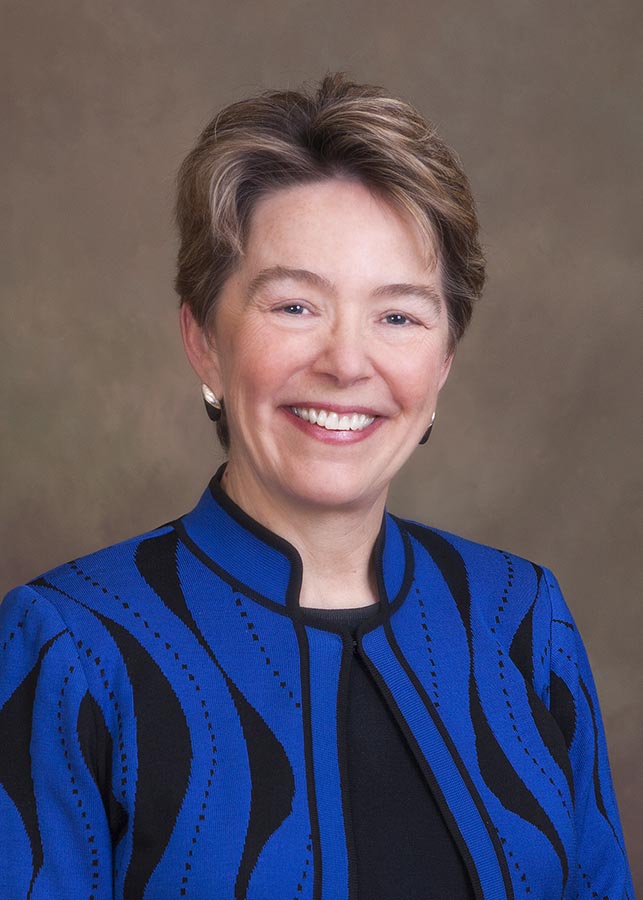Health Care Perspectives
Deborah Oswalt column: Conquering the Consequences of COVID-19
By Deborah Oswalt Jan 17, 2021
By Deborah Oswalt
Although Virginia ranks near the top of a variety of national indicators, it ranks poorly (37th) in access to mental health services. This was a documented concern long before the COVID-19 pandemic. Community health needs assessments done every three years by Virginia’s nonprofit hospitals consistently have identified lack of access to mental health services as the top unmet need. In addition, 66% of the state has been designated a Mental Health Professional Shortage Area (MHPSA). This reflects both an inadequate number and maldistribution of behavioral health professionals.
COVID-19 has added a whole extra dynamic and layers of need, as recently noted in a piece printed by RTD Opinions, which warned of a coming “Category 5” mental health crisis. Findings from the Kaiser Family Foundation indicate that the coming tsunami already is at our shores.
The percent of Virginians reporting symptoms of anxiety or depression significantly has increased since the pandemic started, and reached its highest rate yet this past month (39% compared to 10% during the same period in 2019). Not surprisingly, essential workers reported these symptoms more than nonessential workers (42% vs. 30%). They also reported suicidal thoughts more than nonessential workers (22% vs. 8%).
A recent survey of Virginia’s health safety net organizations (e.g., free clinics, community health centers), which provide a medical home to many of these essential workers, affirms this: 90% have seen significant increases in the number of patients with anxiety and depression due to the stressors of COVID-19. At the same time, 25% reported they have had to reduce the scale of behavioral health services they provide due to the pandemic. Another 25% don’t yet offer these services, but want to.
During the past 11 years, the Virginia Health Care Foundation (VHCF) has invested $7.9 million and provided technical assistance to develop and increase the availability of mental health services for the uninsured and medically underserved patients in health safety net practices. VHCF has provided grants to hire behavioral health professionals; provide telemental health services; and integrate the delivery of mental health services with primary care (reduces stigma and achieves better patient outcomes). The foundation also has introduced and supported the implementation of a trauma-informed approach to providing care within the health care safety net.
As the pandemic’s toll on the mental health of many Virginians became apparent this past spring, VHCF launched a behavioral health hub for health professionals and stakeholders, which now has nearly 1,000 participants. It also helped develop Frontline Wellness VA, a special website with self-care exercises and links for all front-line personnel, including support staff. That now has been incorporated into vacopes.com, along with a warmline for those to call, who are having a hard time coping with the many stresses triggered by the pandemic.
VHCF now is launching Conquering the Consequences of COVID-19 (CCC-19), a multipronged initiative to help address the shortage of mental health services in the health care safety net during this time of burgeoning demand and the post-COVID-19 recovery period. Special consideration will be given to local initiatives that focus on increasing the availability of behavioral health services to people of color or in Virginia’s many MHPSAs.
CCC-19 not only will fund the establishment and expansion of mental health services in the health care safety net, it also will invest in increasing the number of people who become behavioral health professionals. Although there are inadequate numbers of various types of these needed providers, the starkest example of this is the low number of psychiatric mental health nurse practitioners (Psych NPs). There only are 217 licensed to practice in the commonwealth; 57% of localities don’t have any. Other than psychiatrists, for which there also is a significant shortage, Psych NPs are the only behavioral health professionals who both provide counseling therapies, and are trained and licensed to prescribe psychotropic medicines. To date, VHCF has provided full scholarships to 26 nurse practitioners who have become or are in the midst of becoming Psych NPs.
Although VHCF can’t address all of the current need for mental health services, CCC-19 is a good faith effort to move Virginia forward. This special $750,000 initiative is made possible by Sentara Healthcare/Optima Health, Dominion Energy, the Claude Moore Charitable Foundation and other generous private donors. We all are committed to preventing the coming tsunami and mental health crisis by helping address the many traumas now related to the pandemic.
Deborah Oswalt is founding executive director of the Virginia Health Care Foundation, a public-private partnership initiated by the General Assembly and its Joint Commission on Health Care in 1992. VHCF’s mission is increasing access to primary health care for uninsured and medically underserved Virginians. Contact her at: doswalt@vhcf.org
Last Updated on January 19, 2021


